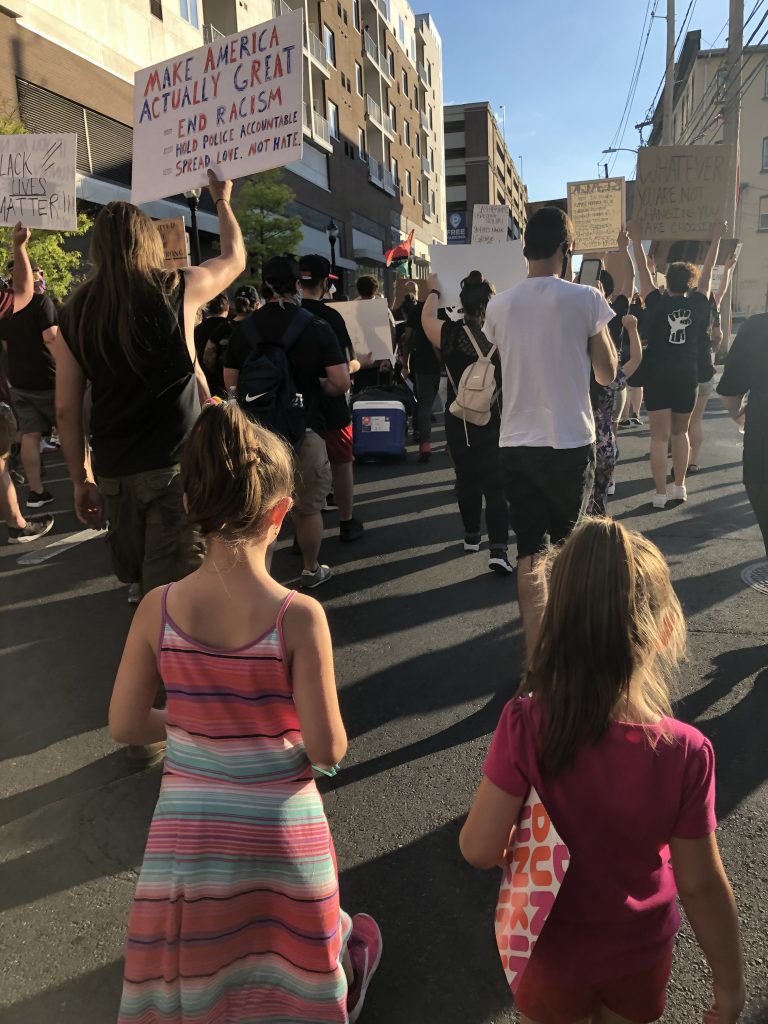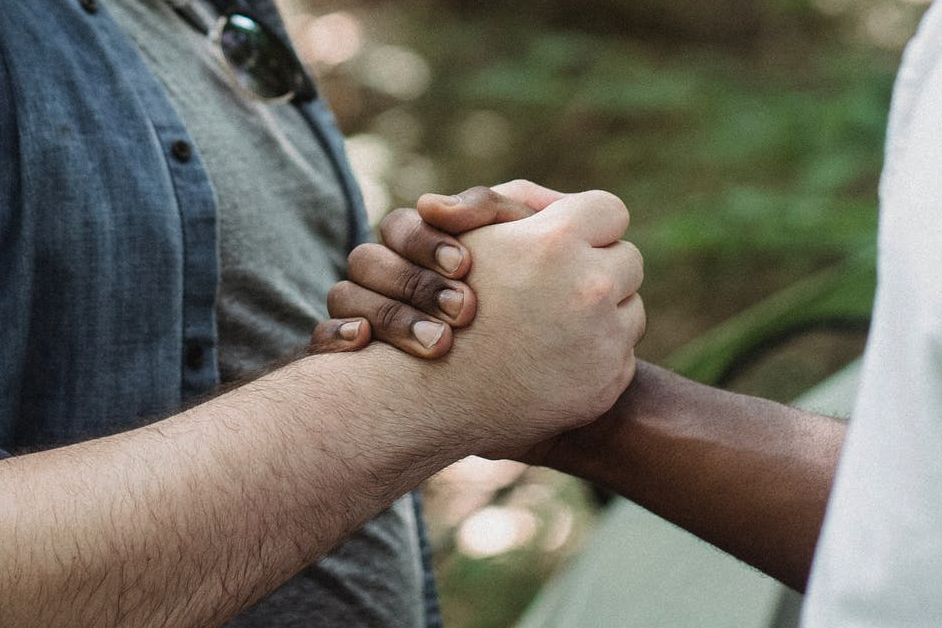
As our country prepared to vote this year, the Mosaic Intercultural Team encouraged many people in our conference to vote as an act of solidarity: solidarity with black and brown people who are fighting for their lives, solidarity with the incarcerated and undocumented who can’t vote, and solidarity with those who are poor and vulnerable. In this way, we bear witness to the reality that God is just, compassionate, loving, and cares for the vulnerable. (To read more, click here.)
This year more than ever, it felt like voting as solidarity was important. In recent years, white supremacy has been allowed to thrive and it has damaged the lives of many people I care about; it feels like every day a new group of people has been attacked or oppressed. As I went to the polls on November 4, I used my vote to bear witness to the God of justice and truth, the God of the defenseless, the God whose love has no borders, the God of freedom and restoration, and the God of who loves all humanity.
As followers of Jesus, the work remains the same—to fight white supremacy, protect the oppressed and marginalized, and preach the gospel of Jesus. The Mosaic Intercultural Team plans to press forward with that work.
The days after the election I saw many memes and tweets with comments about the results. There was one that caught my attention. The original post said, “You know what I’m going to do the day after Election Day if my candidate loses? Go to work. Be happy. Live my life. Love others. If he wins? Same.”
Someone in the Twitter-verse decided to correct it. It now read, “Remember that politics are personal to the marginalized and oppressed. Be grateful for the privilege that allows you to be relatively unaffected by policy decisions and show compassion and continued allyship to those who are in pain because of an outcome which may change their life.”
To me, this corrected statement captured the idea of voting as solidarity. To some people, whether their candidate wins or loses, it doesn’t change their day to day life. But for others, who is president directly impacts their well-being, safety, and rights.
When the election results were announced, some of the country breathed a collective sigh of relief. For my black and brown friends, Muslim friends, LGBTQ friends, and immigrant friends, it felt like the nightmare was finally over.
With the president-elect and vice-president-elect, it feels to some people like there is hope for things to change. Yet even with the new administration, we know that white supremacy still has a strong hold on this country. Many thought the country reached post-racial status when Obama was elected. Trump’s presidency proved that to be wrong. But it would be equally wrong to think that with Biden and Harris in the White House, white supremacy is defeated in this country.
As followers of Jesus, the work remains the same—to fight white supremacy, protect the oppressed and marginalized, and preach the gospel of Jesus. The Mosaic Intercultural Team plans to press forward with that work.
Post-election, solidarity might look like visiting those in prison or advocating for prison reform, supporting a sanctuary church or visiting the border, serving at a homeless shelter or soup kitchen, checking on your black friend or donating to black community organizer groups, or just educating yourself about white supremacy and the ways it impacts society (click here for resources).
As a conference, when we focus on our priorities of being formational, missional, and intercultural, we will bear witness to a God who is just, compassionate, and cares for the poor and the vulnerable.

The opinions expressed in articles posted on Mosaic’s website are those of the author and may not reflect the official policy of Mosaic Conference. Mosaic is a large conference, crossing ethnicities, geographies, generations, theologies, and politics. Each person can only speak for themselves; no one can represent “the conference.” May God give us the grace to hear what the Spirit is speaking to us through people with whom we disagree and the humility and courage to love one another even when those disagreements can’t be bridged.
